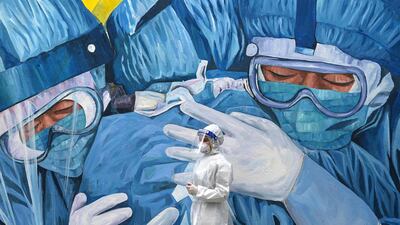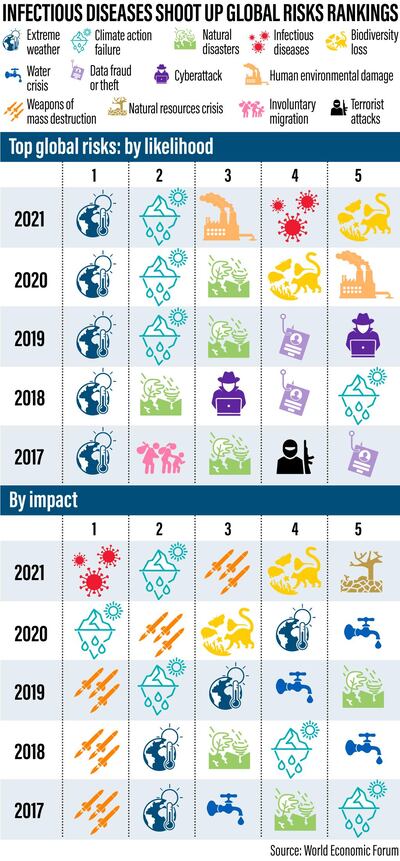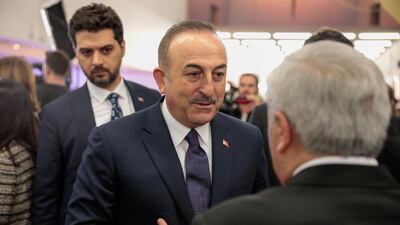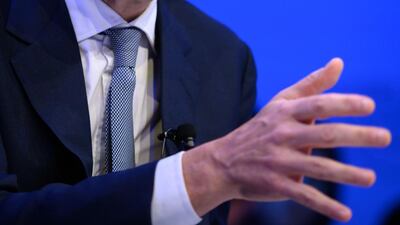Infectious diseases have been named as the top global risk in the annual World Economic Forum survey of critical threats to the world.
Underlining the effect of the pandemic over the last 12 months, the Global Risks Perception Survey found that 58 per cent named the impact of spreading disease, compared with the 55 per cent who spotlighted livelihood crises and almost 53 per cent ranking extreme weather events.
Climate action failure was named as the top driver of adverse risks. Extreme weather was the most likely cause of a catastrophic event, holding on to the top slot it first took in 2017.
The prevalence of the pandemic is likely to have far-reaching consequences, according to the WEF, which presented the results in a press conference on Tuesday.
The leaders of the report said that societal fractures are a likely outcome of the stress test posed to the world in 2020. The experts also see the risks from a widening digital gap and a doubly disrupted, so-called pandemial generation that saw both the financial crisis and now the recession.
"It is important to look at this rising erosion of social cohesion that comes in part from livelihood crisis and in part from the environmental crisis, and in part from a generational shift, in particular, the pandemials that have been most affected by the current crisis," said Saadia Zahidi, managing director of the WEF.
With the high point of globalisation in the rear-view mirror, the WEF analysts also see a "middle power morass", which heightens geopolitical instability and intensifies the fight between medium-sized countries to keep a seat at the top table.
Beyond the short-term damage from the pandemic, there is the overarching threat posed by the failure to tackle climate change in recent decades.
"If you look at the next 10 years, the most problematic risk that the world faces is still climate change. There is no vaccine for this, there is only the action that we can take today to build more sustainable economies," Ms Zahidi said.
The pile-up in the last year for businesses worldwide has tested the resilience of most firms, both multinationals and locally focused operations.
Carolina Klint, risk management leader for Europe at insurer Marsh, said politics, technology and societal pressures were all driving up risks for businesses.
"This past year we saw border closures, lockdowns, export restrictions and that companies need to keep an eye on shifts in domestic policies to focus on national security and self-sufficiency," she said. "Technological drivers are also accelerating and disrupting the business landscape, and the rapid digitalisation and remote working has exponentially increased cyber exposures to create the more complex and potentially less secure networks."
Despite the global expenditure of $12 trillion in stimulus funds, Borge Brende, the president of the WEF, warned that the economy was not yet out of the woods.
"Whatever it takes still applies and there is a larger risk of doing too little than too much," he said.
"And not only focusing on consumption – we have to invest in the future. We have to invest in global access to the internet, we have to invest in schools and upskilling, reskilling and making sure that inequalities are not growing but inequalities are declining."

















